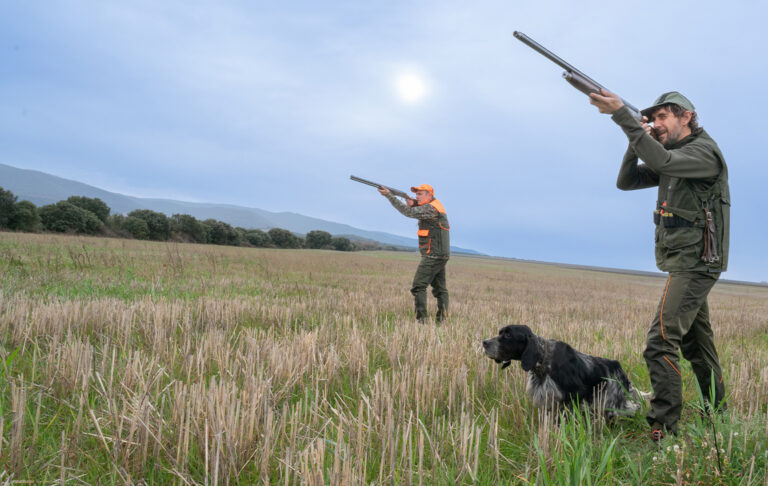If you are a regular hunter, you know that sharing the land with nature also means living with some of its less desirable inhabitants.
Ticks are increasingly present in rural environments and pose a real risk, not only because of the discomfort of the bite, but also because of the diseases they can transmit, such as Lyme disease or spotted fever.

Fortunately, with a few precautions and the right equipment, you can minimise the risk of being bitten. In this article, we explain how to prevent ticks from becoming a problem during your hunting trips.
🕷️ Why are ticks dangerous?
Ticks are parasites that feed on the blood of animals and humans. Their bite itself does not hurt, which means that they often go unnoticed for hours. The real risk lies in their ability to transmit infectious diseases. In areas of scrubland, grasslands, dense scrub and humid forests, it is common to find them during the hunting season.
According to the Ministry of Health, tick-borne diseases have increased in Spain in recent years, and hunters are among the groups most exposed due to the duration and type of activity they engage in.
Key tips for avoiding tick bites while hunting
1. Wear appropriate protective clothing
The first step in prevention is to create a physical barrier between your skin and the environment. Opt for long clothing, tight at the cuffs and ankles, and preferably in light colours so that ticks can be easily detected.
💡 Chiruca Hunting Tip: Hi-Vis 08 gaiters are a great solution for protecting your legs and preventing ticks from getting into your footwear. Their snug fit and resistant fabric act as an effective barrier in the most vulnerable area: the junction between the boot and the trousers.
2. Wear socks with repellent treatment
Technical socks for hunters can make a big difference. Some models incorporate insect repellents into their fabric, acting as a direct defence against these parasites.
👣 Recommendation: Caza Chiruca anti-tick socks feature Smart Innovation anti-tick and anti-mosquito treatment, making them an effective repellent against ticks and other insects. They are comfortable, breathable and specifically designed for long days in the mountains.
3. Apply repellent to clothing and skin
Use products containing DEET or Icaridin, preferably formulated for hunting or outdoor activities. Some are applied to clothing and others directly to the skin.
4. Avoid risk areas whenever possible
Although in many hunts and waits there is no alternative, if you have to move through areas of tall grass or bushes, try to do so on passable paths and avoid sitting on the ground without protection.
5. Check your body when you get home
A thorough check after the day is key. Pay special attention to your armpits, groin, behind your knees, waist and scalp. The sooner a tick is removed, the lower the risk of disease transmission.
🚨 What to do if you are bitten by a tick?
- Do not pull it out abruptly: Use fine tweezers and pull gently upwards, without twisting.
- Disinfect the area: Clean with alcohol or chlorhexidine.
- Monitor the situation: If you notice a fever, discomfort or abnormal redness on the skin, see your doctor and mention the possible bite.
Prevention is your best ally against ticks. Equipping yourself properly, following basic protection guidelines and checking your body after hunting can save you more than one scare. Adding technical garments such as socks or gaiters designed specifically for this threat to your equipment is a small investment with a big impact on your safety.
Because enjoying hunting also means taking care of yourself.






